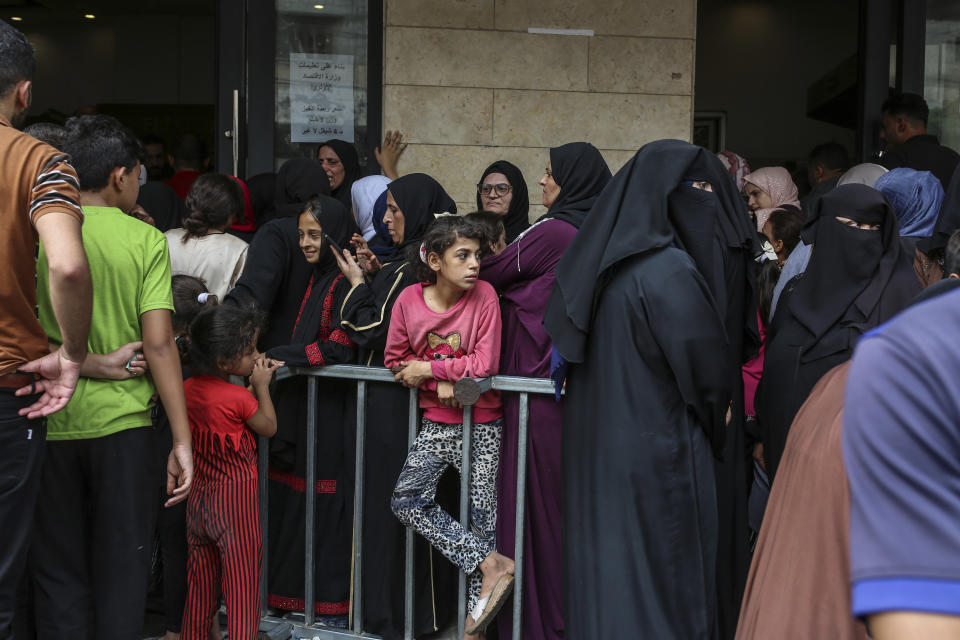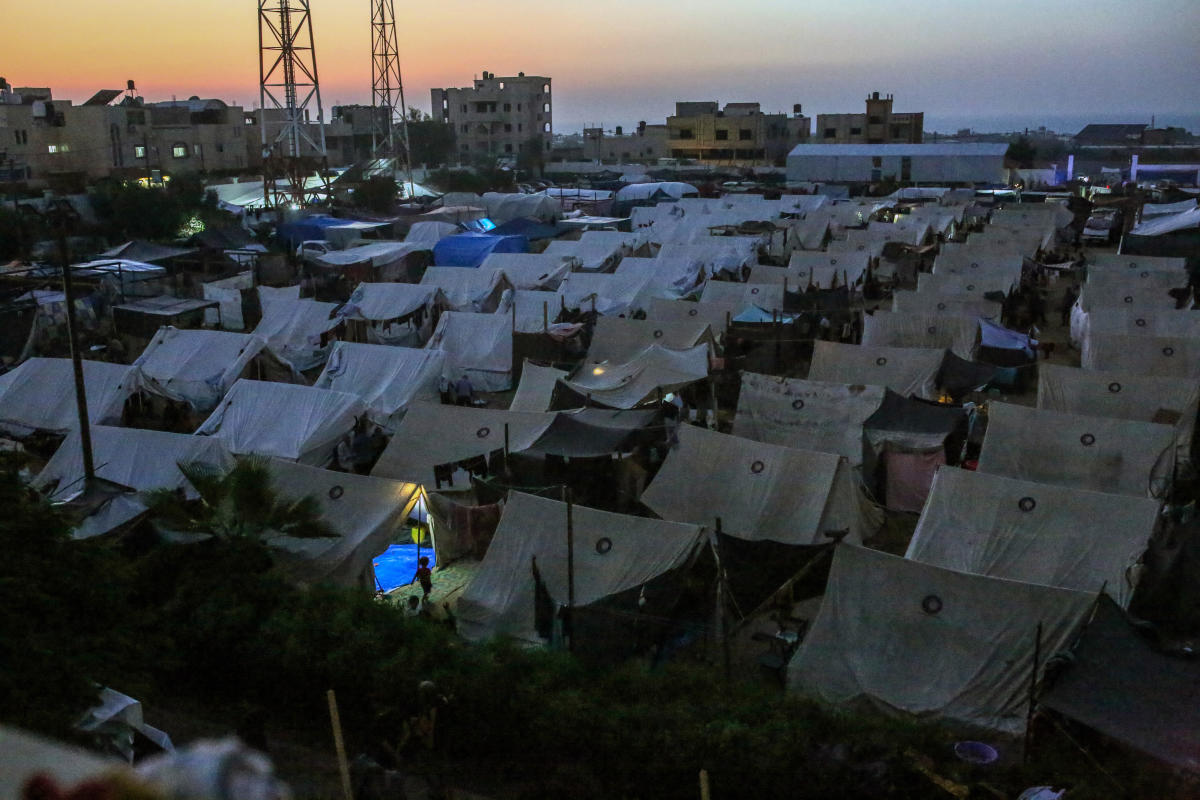By Wednesday, Sondos Badawi’s relatives had fled for their lives four times in eight days.
They left their home in Gaza City after Israel ordered citizens to evacuate south. They then returned north when the neighborhood where they were staying with friends succumbed to Israeli aerial bombardments. The third time, they had to run, barefoot and bloodied, to seek shelter in a hospital after a missile exploded in their home. The fourth time, they decided to head south once more.
“No place is safe,” he commented.
Throughout the Gaza Strip, residents are cornered in a situation where every decision seems wrong; There are bombings everywhere.
Israel says it is targeting Hamas infrastructure, but its aerial bombardments have also destroyed or damaged civilian infrastructure across Gaza, from homes and bakeries to shopping malls and mosques.
Hundreds of thousands of people left northern Gaza after Israel told them to evacuate and head south almost two weeks ago, but difficult conditions there, with incessant airstrikes, overcrowded shelters and the constant spread of disease , have forced some of them to return to the north.


Ahmed Alghazaly, 26, packed up his family and left his home in Gaza City earlier this month for Deir al-Balah in southern Gaza. They crowded into a relative’s house, which was damaged in an aerial bombardment shortly afterwards. They then returned to Gaza City, where an attack damaged his home.
Now, Alghazaly’s extended family is spread across Gaza, he said, looking for shelter, food and water wherever they can find it.
“Everything disappeared, everything we had,” he said. “I have seen things that make me wish for death.”
Movements through Gaza have worsened: they are no longer just routine, but tortuous. When Badawi, 24, and his family of 13 (his father, his sisters and a brother, with their respective spouses and children) decided to leave the south after two days of aerial bombardment, it took them a long time to find transportation they could afford, because “When you find someone to take you, it’s like finding a precious stone,” he said.
The relief they felt upon returning home did not last long. Two days after his return to Gaza City, on Sunday night, bombs began to fall in his neighborhood. They managed to get out to the garden before an airstrike destroyed their house, Badawi said.
More bombs fell. He believed that he was going to die. They ran to a neighbor’s house, but before they could get there, a missile exploded near them, injuring the leg of one of her sisters. They managed to reach the house, but then an explosion shook the building and part of the roof collapsed. They rushed out again and his brother Khaled ran towards Al Quds Hospital. The last time he saw it, there were explosions everywhere. He believed he had died.
The bombardment lasted more than an hour, he commented… an hour of prayers and anguish. As soon as they thought the attacks had stopped, the entire family, with the exception of Khaled, went to the same hospital. Without veils, without shoes, without money or possessions, they advanced through craters and roads full of debris and pieces of glass, with their little ones in their arms.
They stayed at the hospital for two days, where they were reunited with Khaled, who had survived, while Badawi’s sister received treatment for her leg.
But evacuation orders were also given for Al Quds Hospital, they said.
Again they tried to find someone to take them south. A neighbor paid the fee, about $73. By Wednesday night, they were crowded into another brother’s friend’s house. They didn’t know how long they would stay there.
c.2023 The New York Times Company
2023-10-28 10:54:26
#place #safe #Palestinians #forced #flee


